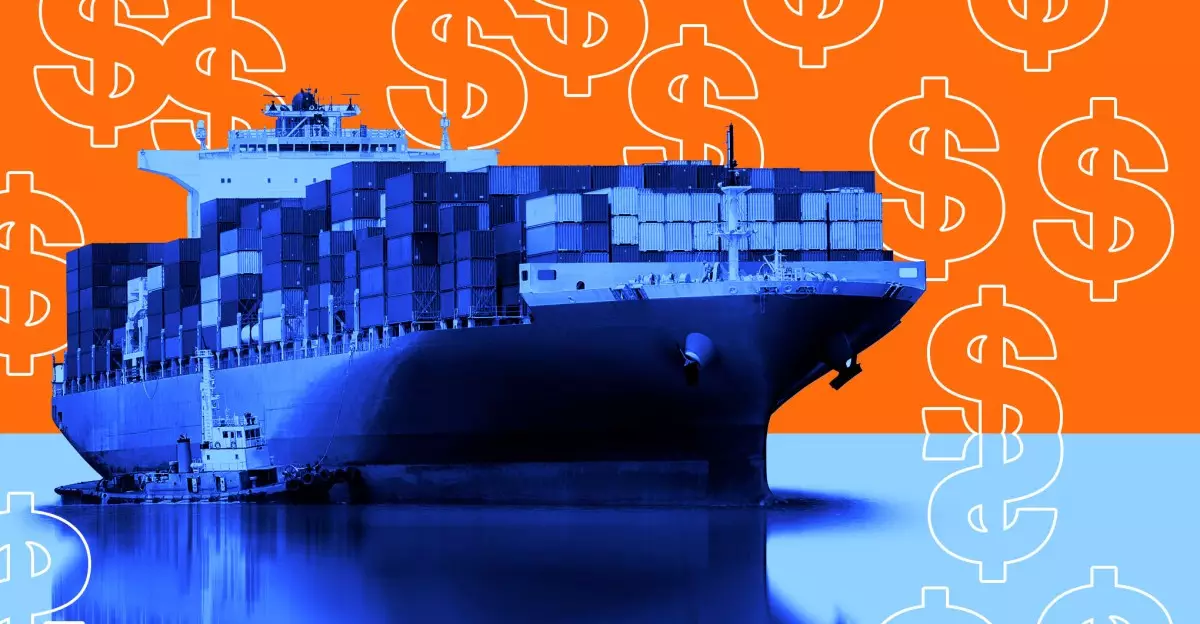The removal of the de minimis exemption on packages prevailing from China and Hong Kong marks a critical turning point for American online shoppers and e-commerce businesses. Before May 2, 2025, items valued at less than $800 could enter the United States without incurring tariffs, allowing consumers to access affordable goods from overseas. This exemption, which enabled the seamless entry of nearly 1.4 billion low-value packages into the country in 2024 alone, has now been terminated under the Trump administration’s evolving tariff strategy. The sudden removal of this exemption has left consumers and retailers alike grappling with uncertainties about the future of online shopping.
The Rising Costs of Consumer Goods
As the new tariff rules take effect, individuals who depend on rapid access to inexpensive products from platforms like Temu and Shein will experience considerable sticker shock. With the introduction of fees that could reach up to 90% of the package value or a flat rate of $75 per postal item—along with significantly higher duties for packages sent via services like DHL—the financial burden on consumers is likely to be substantial and immediate. The idyllic days of bargain hunting through online platforms may be rapidly fading, as the costs associated with these new regulations could force retailers to adjust their pricing structures. Ultimately, the burden of these increased expenses will likely trickle down to the average consumer, who is already grappling with a high inflation environment.
Confusion and Chaos in Postal Services
The abrupt implementation of the tax changes has already thrown the U.S. postal system into disarray. Early reactions from the United States Postal Service (USPS) included a momentary suspension of all packages from China and Hong Kong, further complicating the logistics of an already strained shipping network. Subsequent announcements indicated that this suspension was a hasty response to the complicated changes being introduced. It raises questions about whether the USPS, Customs and Border Protection (CBP), and private shipping companies are properly equipped to handle the monumental shift in package processing requirements. The potential for chaos could linger if the necessary systems are not established to deal with the sheer volume of lower-value goods entering the market.
The Economic Ramifications for Businesses
Beyond immediate consumer impact, ramifications extend to e-commerce businesses that have built their models on the ease of low-value shipments. Platforms like Shein, Temu, and even Amazon Haul have derived substantial benefit from the de minimis exemption, with low tariffs enabling them to secure competitive advantages in price-sensitive markets. As new taxes render their operations costlier, the grim reality is that some branches of these companies may have to rethink their strategies, with many facing the possibility of reduced inventory options or even an unviable business model.
The Unclear Goals of Tariff Policy
Amidst the confusion, there lies a broader question regarding the rationale behind terminating the de minimis rule. The administration has framed the removal as a mechanism to combat the influx of synthetic opioids and other illicit goods entering through low-value packages. However, the effectiveness of this approach warrants skepticism. It remains unclear how the new classifications and duties would enhance the government’s ability to intercept these dangerous substances, especially when it is evident that existing infrastructures may struggle to keep pace with the sheer number of packages. The policy’s purported aims could cause further frustration, especially if the administration fails to demonstrate tangible results in curbing illegal goods.
The Future Landscape of E-commerce in the U.S.
As consumers brace for the changes, examining the long-term implications of this new tariff structure is crucial. If manufacturers and retailers are compelled to raise prices, choices could dwindle for consumers, triggering a ripple effect throughout the market. The affordability and accessibility that governed much of online shopping will inevitably shift, altering the relationship between consumers and retailers. Ultimately, while the government aims to recalibrate international trade policies, the unintended consequences on e-commerce could have lasting implications for the American consumer experience.
The landscape of online shopping is evolving, with rising tariffs casting a shadow over the once carefree habits of bargain hunters. As we navigate this transitional phase, one truth remains clear: the pathway to affordable shopping in the U.S. has been irrevocably altered, leading to a potentially less vibrant—if not restrictive—shopping experience.

